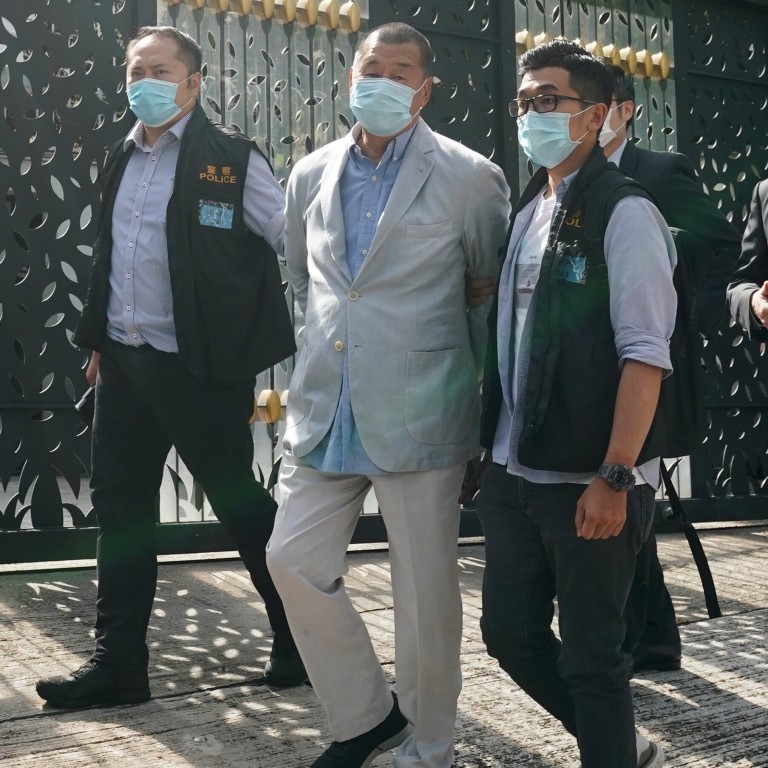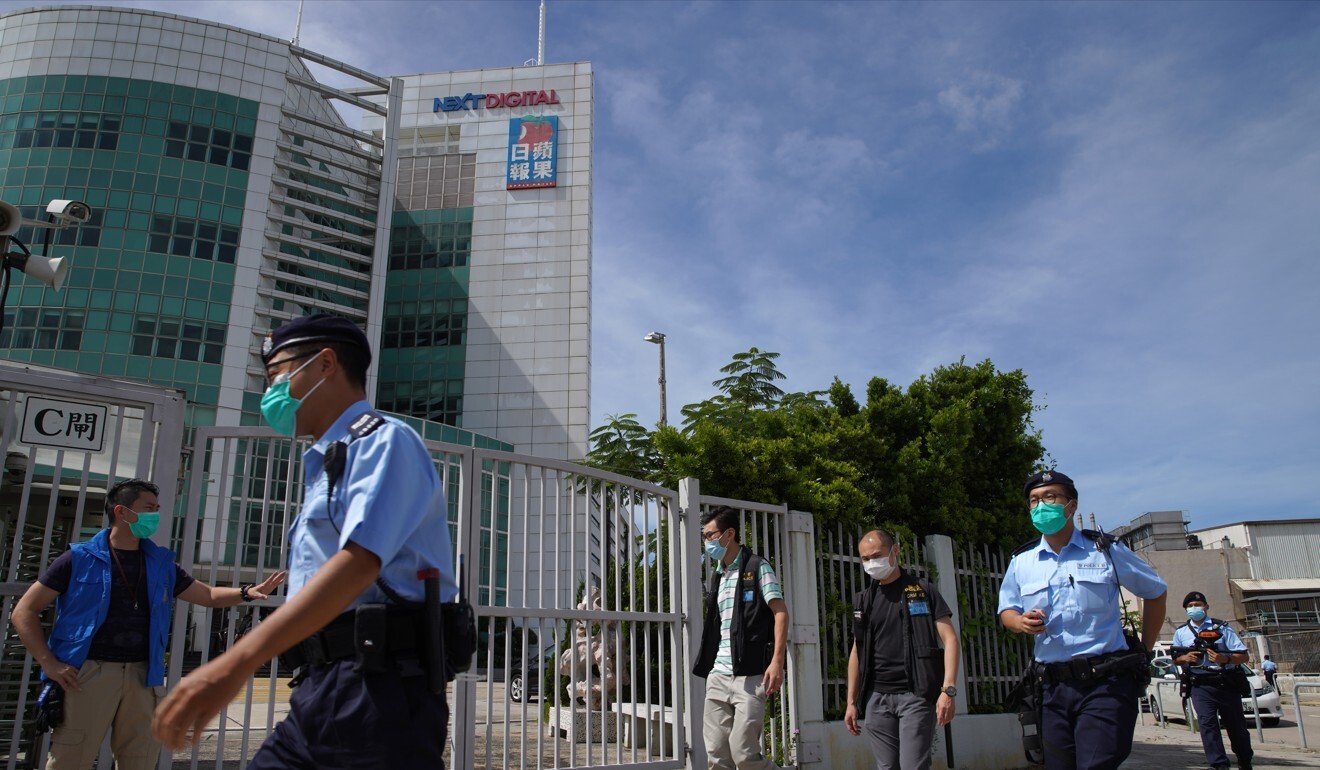
Hong Kong publisher Jimmy Lai denies violating national security law, calling accusations an ‘excuse to clamp down’ by Beijing
- The Apple Daily founder denies police accusations that he contributed to a group that called for US sanctions
- Insinuations that he advocates for Hong Kong independence are a ‘trap’ by the Chinese Communist Party, he says
Apple Daily founder Jimmy Lai Chee-ying shrugged off allegations against him on Friday, distancing himself from an activist group he was accused of funding, leading to his high-profile arrest under the national security law earlier this week.
Three days after he was released from police custody, Lai delivered a flat-out denial of the accusations in an interview with Bloomberg, accusing police of trumping up charges against him. However, he refused to give further details, citing ongoing legal procedures.
“I have never given one cent or one dime to the movement, and nobody has given us any money except moral support,” said the self-made media mogul, who was arrested on suspicion of fraud and collusion with foreign forces on Monday.
“I am not allowed to talk about specifics because the legal proceedings are starting … A lot of them, I can tell you, were trumped-up.”
Hong Kong police turn focus on donors to group urging sanctions
Hong Kong police swooped in on Lai’s Ho Man Tin residence on Monday morning to arrest him, before detaining his two sons, four senior employees and three activists later in the day. Prominent activist Agnes Chow Ting, a close ally of Joshua Wong, the young face of the city’s opposition movement, was among those arrested.
More than 200 police officers also descended on the tabloid-style Apple Daily’s office in Tseung Kwan O, to collect evidence over allegations that Lai and some of his colleagues had donated to a group run by the three activists to call for foreign sanctions on Hong Kong. Lai and his colleagues were also accused of defrauding the Lands Department to secure lower rent for the newspaper’s premises.

During the interview, Lai said he was surprised that he had been targeted, as he expected Beijing to go easy with the sweeping national security law to avoid intimidating businesses in the city. “But now, they have arrested me. I was a bit shocked to be honest,” he said.
Following months of anti-government protests – which saw what started out as peaceful demonstrations last June escalate into violent clashes with police – Lai also urged Hong Kong people to remain “flexible”.
“Radicalism is not [the way] forward. We can’t just confront the regime with very strong actions or force,” he said.
The owner of the news daily, which is known for its strong critiques of Beijing and the Hong Kong government, also distanced himself from any calls for separatism – forbidden outright under the security law – saying insinuations to the contrary were created by Beijing to legitimise its suppression of him and his business.
Court writs filed as Apple Daily seeks return of seized journalistic materials
Following Lai’s arrest on Monday, a spokesman for the cabinet-level Hong Kong and Macau Affairs Office in Beijing accused Lai of boasting “about fighting for America arrogantly, taking part to plan, organise and initiate a raft of unlawful resistance movements … [and] using his media to create and spread rumours, inciting and supporting violence, and providing funds for those advocating” Hong Kong independence.
But Lai hit back on Friday. “I myself, my organisation and my media … have never agreed with people who support Hong Kong independence. I always treat this as a conspiracy set up by the CCP [Chinese Communist Party] to trap us in, to give them an excuse to clamp down on us,” he said, arguing that his stance had been consistent to this day.

